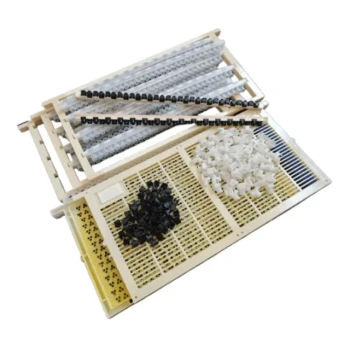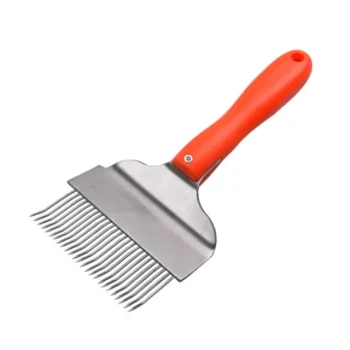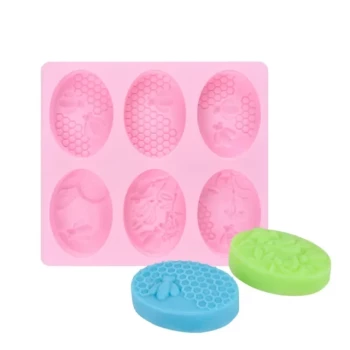The primary benefit of using synthetic comb is resource efficiency. It allows bees to bypass the highly energy-intensive process of wax production, which requires them to consume an estimated 6-8 pounds of honey to produce just one pound of wax. By providing a ready-made structure, you enable the colony to immediately redirect its energy toward brood rearing and resource storage, accelerating its development.
While synthetic comb offers a significant shortcut for colony development by saving bees energy, it is a management tool with specific trade-offs. Its value depends entirely on your goals, whether that's rapid colony expansion, honey production, or maintaining a more natural hive environment.
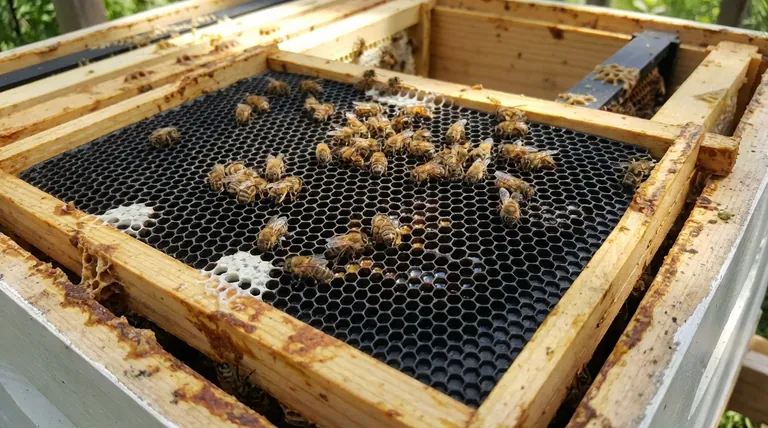
The Core Advantage: Bypassing the "Wax Tax"
A bee colony's most precious resources are its population and its food stores. Building wax comb is an enormous drain on both. Synthetic comb allows a colony to skip this step, creating a powerful advantage in specific situations.
The Economics of Wax Production
Forager bees must collect vast amounts of nectar, which is then converted into honey. Worker bees then consume this honey to fuel the wax glands on their abdomens, which secrete tiny flakes of beeswax.
This "wax tax" is a significant biological cost. Providing a pre-built foundation removes this tax, freeing up honey that can be used to feed the queen, nurse bees, and developing larvae.
Redirecting Colony Energy
With the comb already built, the colony can immediately put it to use. The queen has an instant place to lay eggs, and returning foragers have cells ready for nectar and pollen.
This allows the colony's efforts to be focused on expansion and production rather than on construction.
Critical for New or Weak Colonies
A newly installed package of bees or a small nucleus colony is at its most vulnerable. They have a limited workforce and few resources.
Providing synthetic comb gives them the immediate structure needed for the queen to begin laying, which is the most critical factor in building the colony's population quickly.
Practical Applications and Benefits
Beyond the core energy savings, using synthetic comb provides several tangible benefits for the beekeeper focused on management and production.
Accelerating Colony Buildup
For beekeepers looking to grow their apiary by making splits or establishing new hives, synthetic comb is a powerful accelerator. It can significantly shorten the time it takes for a new colony to become self-sufficient and productive.
Maximizing Honey Flow
A strong, sudden nectar flow is a major opportunity for honey production. If bees have to spend the first week of the flow building wax, a significant portion of the available nectar can be lost.
Hives equipped with drawn synthetic comb can begin storing surplus honey from day one of the flow, maximizing the potential harvest.
Ensuring Uniform Cell Size
Synthetic comb is manufactured with perfectly uniform, worker-sized cells. This encourages the queen to lay a consistent, solid brood pattern and can help limit the amount of drone comb a colony builds in the brood nest.
Durability and Reusability
Natural wax comb is fragile. It can melt in extreme heat, get damaged by hive pests like wax moths, and break apart in a honey extractor.
Synthetic comb, typically made from food-grade plastic, is highly durable. It can withstand high temperatures, is impervious to wax moths, and holds up to repeated use in high-speed extractors.
Understanding the Trade-offs and Challenges
Synthetic comb is a tool, not a perfect solution. Its benefits come with important considerations that every beekeeper must weigh.
Bee Acceptance Can Be Slow
Bees do not always accept plastic comb as readily as their own natural wax. Most synthetic frames come with a light coating of beeswax, but it is often recommended that the beekeeper add an additional, heavier coat to encourage acceptance.
Without proper coating, bees may be slow to use the frames, negating their purpose.
Concerns Over Contamination
For beekeepers practicing organic or natural methods, the introduction of plastic is a primary concern. There are questions about the long-term chemical stability of plastics in the hive environment.
Furthermore, unlike wax comb which can be culled and replaced, plastic frames are a permanent fixture. Any pesticides or treatments that accumulate in the material are difficult to remove completely.
Cleaning and Management
While durable, synthetic comb can be more difficult to clean than wax. Old, dark comb is typically culled and replaced. Plastic frames must be scraped and cleaned, a labor-intensive process. Using pressure washers or certain solvents can damage the plastic or leave residues.
Making the Right Choice for Your Apiary
The decision to use synthetic comb is not about right or wrong; it's about aligning your equipment with your specific beekeeping goals.
- If your primary focus is maximizing honey production: Synthetic comb is a powerful tool to ensure your bees are storing honey, not building wax, during a nectar flow.
- If your primary focus is rapid expansion: Using synthetic comb in splits and new colonies provides the instant infrastructure needed for fast population growth.
- If your primary focus is "natural" or treatment-free beekeeping: You will likely prefer to let the bees build their own natural wax comb, avoiding the introduction of man-made materials.
Ultimately, understanding synthetic comb as a specialized tool—rather than a universal replacement for natural wax—allows you to make the most strategic decision for the health and productivity of your hives.
Summary Table:
| Benefit | Key Advantage |
|---|---|
| Resource Efficiency | Bypasses energy-intensive wax production, saving 6-8 lbs of honey per lb of wax. |
| Accelerated Buildup | Provides instant structure for new/weak colonies, speeding up population growth. |
| Maximized Honey Flow | Allows immediate honey storage during nectar flows, increasing harvest potential. |
| Durability & Reusability | Resists heat, pests, and extractor damage for long-term, cost-effective use. |
Ready to enhance your apiary's efficiency and productivity?
As a leading wholesale supplier to commercial apiaries and distributors, HONESTBEE provides the durable, high-performance synthetic comb and equipment your operation needs to accelerate colony growth and maximize honey yields. Our products are designed to help you save resources and scale your business effectively.
Contact our team today to discuss your wholesale needs and discover how HONESTBEE can support your success.
Visual Guide
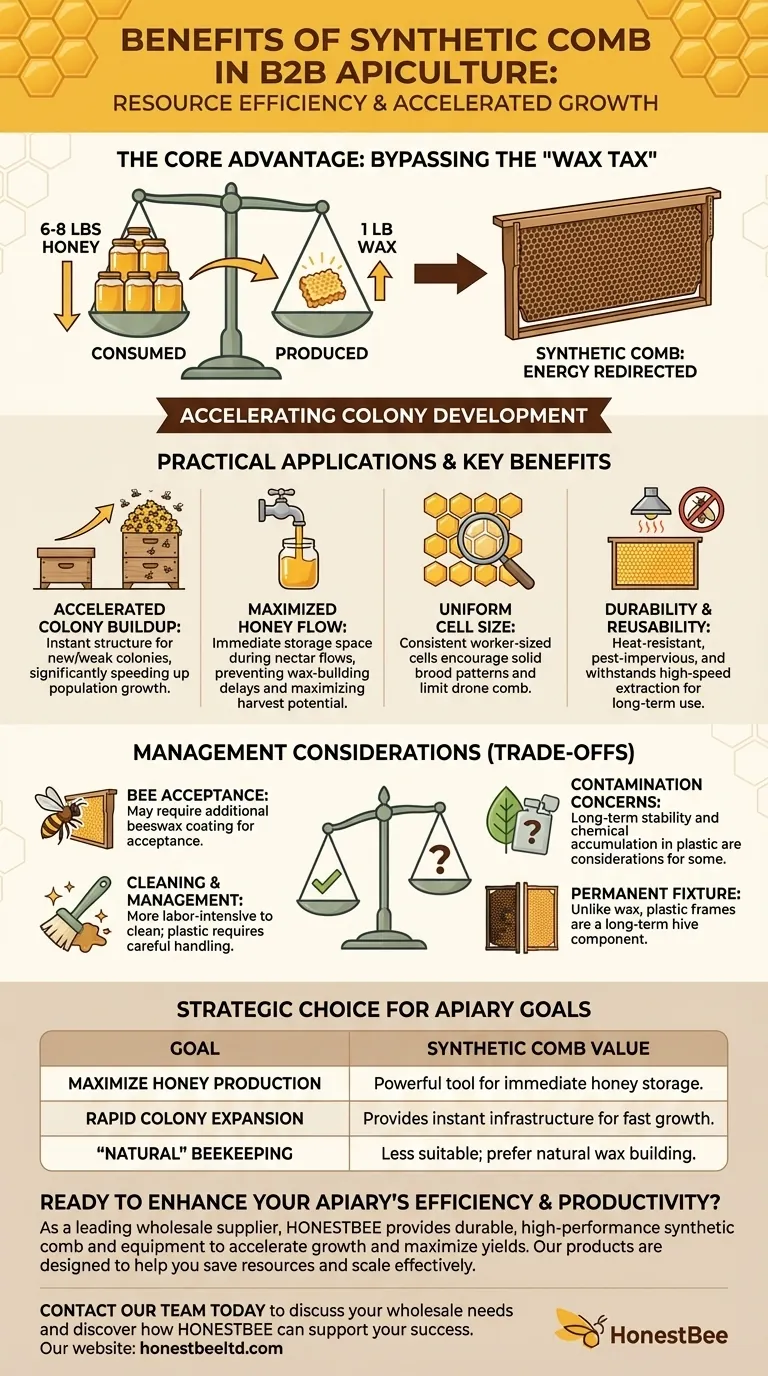
Related Products
- Food Grade Plastic bee Foundation for Bee Frames
- Colorful Silicone Beeswax Foundation Mold Mould for Beekeeping
- Copper Bee Frame Eyelets for Beekeeping
- Wooden Bee Hive Frames for Beekeeping and Wholesale
- Professional Long-Handled Silicone Honey Scraper for Beekeeping
People Also Ask
- How do wax foundation sheets support the natural behavior of bees? Enhance Hive Productivity and Biological Acceptance
- What are the primary functions of wax foundations? Enhance Hive Efficiency and Honey Yield
- What role does a standard comb foundation play in measuring beeswax productivity? Quantify Your Colony's Wax Output
- What is the most important factor for bees to draw out foundation? A Strong Nectar Flow is Key
- Why is it necessary to use organic and pesticide-free beeswax foundation for experimental bee colonies?
- How should freshly embossed foundation sheets be handled and stacked? Expert Tips for Perfect Wax Cooling
- Why do some honey bees show a preference for 100% beeswax foundation? Optimize Hive Growth & Acceptance
- What are the primary differences between natural honey bee cells and commercial foundations? Optimize Hive Health





